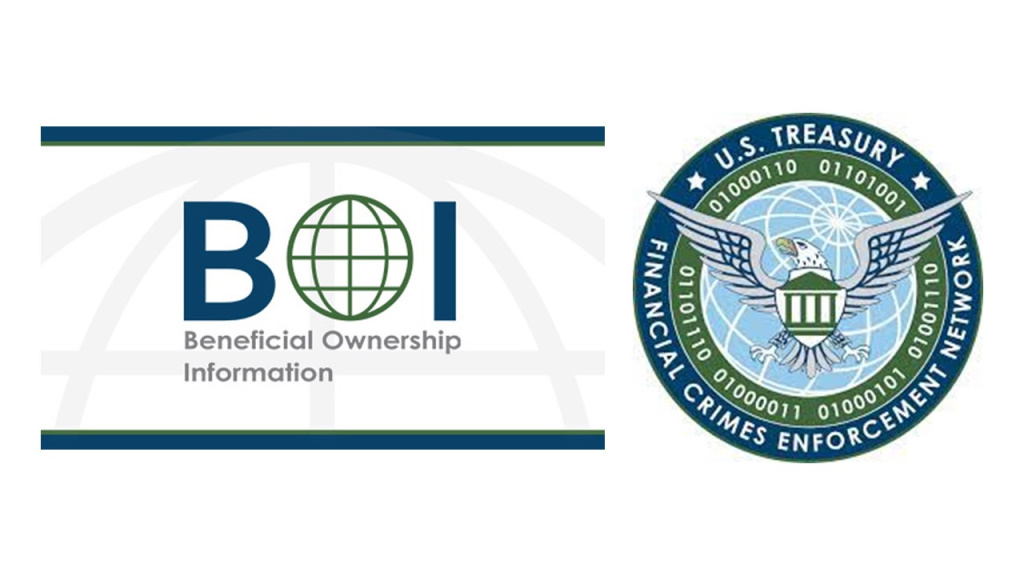
Introduction: The Corporate Transparency Act (CTA), enacted in January 2021, represents a significant shift in U.S. anti-money laundering efforts by requiring certain small businesses to disclose their beneficial ownership information to the Financial Crimes Enforcement Network (FinCEN). This guide serves as a comprehensive resource for small businesses navigating the requirements of the CTA and BOI filing in 2024.
Understanding Beneficial Ownership Information (BOI) Reporting: The CTA mandates that certain small businesses file BOI reports with FinCEN, disclosing detailed information about their beneficial owners. Beneficial owners are individuals who directly or indirectly own or control 25% or more of the ownership interests in the business. The goal of BOI reporting is to enhance transparency and combat illicit financial activities, such as money laundering and terrorism financing.
Types of Businesses Exempt from BOI Reporting: The following types of businesses are generally exempt from BOI reporting:
- Publicly traded companies listed on U.S. stock exchanges.
- Entities with substantial reporting obligations under existing federal regulations, such as SEC-registered companies.
- Nonprofit organizations and entities already subject to extensive reporting requirements under other federal laws.
Types of Businesses Required to File BOI Reports: Small businesses falling within the following categories are typically required to file BOI reports:
- Corporations, limited liability companies (LLCs), partnerships, and other similar entities formed or registered in the United States.
- Entities with fewer than 20 employees and annual gross receipts or sales of less than $5 million.
- Entities engaged in activities that are deemed to pose a higher risk of money laundering or terrorism financing, as determined by FinCEN.
Information Required for BOI Reporting: Small businesses required to file BOI reports must compile and submit the following information to FinCEN:
- Full legal name and address of the reporting company.
- Tax identification number (EIN) of the reporting company.
- Full legal names, dates of birth, residential addresses, and unique identifying numbers (e.g., driver’s license or passport numbers) of each beneficial owner.
- A description of the ownership interests held by each beneficial owner, including the percentage of ownership.
- Any other information deemed necessary by FinCEN to identify and verify the beneficial owners.
Penalties for Non-Compliance: Failure to file a BOI report or providing false or misleading information can result in significant penalties for small business owners. Penalties may include civil fines of up to $500 per day for non-compliance and criminal penalties of up to $10,000 and/or imprisonment for up to two years.
How Rockerbox Can Help Small Businesses Comply with BOI Reporting: Rockerbox offers comprehensive assistance to small businesses in determining their BOI reporting obligations and filing requirements. Through our free discovery call, we help businesses assess whether they are required to file BOI reports and provide guidance on compliance. Additionally, Rockerbox sets up the BOI reporting process at no cost to the business owner, ensuring a seamless and hassle-free experience. Once the BOI report is submitted, we provide a confirmation binder containing all documentation and submission confirmations for the business owner’s records.
Conclusion: Navigating the requirements of the Corporate Transparency Act and Beneficial Ownership Information reporting can be complex for small businesses. However, by understanding the obligations, exemptions, and filing process outlined in this guide, small business owners can ensure compliance with the CTA and mitigate the risk of penalties. With Rockerbox’s expert assistance and support, small businesses can navigate BOI reporting requirements with confidence and peace of mind.
[Disclaimer: This guide is provided for informational purposes only and should not be construed as legal advice. Small businesses are encouraged to consult with legal and financial professionals to assess their specific compliance obligations under the Corporate Transparency Act and Beneficial Ownership Information reporting requirements.]